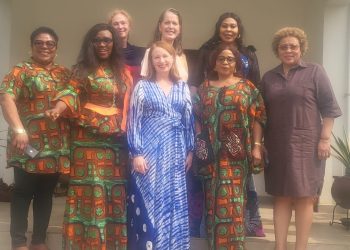With 150,000 hectares of prime farmland ready for development, the Executive Secretary of the National Sugar Development Council (NSDC), Mr. Kamar Bakrin, has urged farmers and investors to seize the expanding opportunities in the country’s sugar industry.
Speaking when members of the All Farmers Association of Nigeria (AFAN) paid him a courtesy visit, Mr. Bakrin stressed that the time is ripe to reduce dependence on imported raw sugar and strengthen local production.
“This is the right time to invest. The Nigerian sugar market is currently valued at over $2 billion, that of Africa is $7bn and the continental deficit will rise to 13 MT in 2030 due to rising demand and regional supply gaps. The market for sugar by-products is worth $10bn,” he said.
According to him, Nigeria’s consumption trends, foreign exchange realities, and global supply uncertainties have created a competitive edge for domestic production.
Bakrin explained that a land viability survey by the NSDC has identified 150,000 hectares across secure regions with suitable climate, access to water, and community support for sugarcane cultivation.
“It has become very very valuable to produce sugar in Nigeria now. It wasn’t always the case but it is the case now. Four critical factors that have created compelling opportunities to invest in sugarcane growing and processing to meet local and export demand for sugar and associated value-added products include (1) Attractive Market(s) (2) Operational Feasibility (3) Sound Economics and (4) Sustainable and Future-proof Business,” he added.
He noted that through its commercial outgrower initiative, the Council plans to allocate at least 50,000 hectares for cane cultivation, recruiting skilled farmers with holdings of 50 to 200 hectares near sugar estates in Numan, Bacita, Sunti, and Lafiagi.
To lower risks for investors, Bakrin said NSDC has rolled out strong incentives under the Nigeria Sugar Master Plan II (NSMP II). These include access to the Nigeria Sugar Industry Development Fund (NSIDF), tariff waivers on equipment imports, a five-year tax holiday, a 30% tax credit on infrastructure, land clearing and lease arrangements with host communities, seedling and input support, mechanisation services, technical guidance from the Nigerian Sugar Institute, and guaranteed purchase agreements with processors.
“We are not just inviting investors; we are providing the tools, capital, and partnerships to ensure they succeed,” he said.
The NSDC boss emphasized additional revenue streams from sugarcane processing, including ethanol, animal feed, biogas, bioelectricity, and bioplastics, making the venture both profitable and sustainable.
Bakrin added that despite 19 sugar-producing countries in Africa, the continent remains a net importer. With the African Continental Free Trade Area (AfCFTA) offering reduced trade barriers, he said Nigeria has the potential to emerge as the continent’s cost leader in sugar production.








